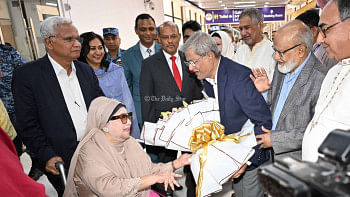The Master of Now

All we really have is the “Now”. Do the past and the future really exist? Yes. But they do so only in the present. We experience the past as visions, memories and emotions, but we experience it in the present. We think about the future as an imagined reality, perceiving it as what could happen. And when the actual future arrives, whatever it may bring, it is again experienced as the present moment or the Now. Thus, it seems as though life or reality is nothing but a series of “present moments” or separate “nows'. But how long is a Now? The present moment just is; it ends as quickly as it begins and thus it cannot be measured in time. Can it thus be argued that all of life is the experience of one, Eternal Now within which we perceive the past and future merely as thoughts or ideas? The great modern spiritual teacher Eckhart Tolle says that to think is to be in either the past or the future. And to think is to suffer from the illusion of time, which steals your focus away from the present moment. To dwell in the Now is to experience one's natural state, that of Presence.
Born Ulrich Leonard Tolle in Lunen, Germany, in 1948, Tolle's early life involved the turbulent relationship of his parents, who ultimately separated, leaving Tolle with a neglectful and traumatic experience of childhood. At the age of 19 Tolle moved to England, making a living out of teaching Spanish and German, a few years later in 1977, he began doing post graduate research at Cambridge University.
During most of his life Tolle suffered from depression and suicidal inclinations. But one night in 1977, Tolle had an awakening that left him completely transformed: “I couldn't live with myself any longer. And in this a question arose without an answer: who is the 'I' that cannot live with the self? What is the self? I felt drawn into a void! I didn't know at the time that what really happened was the mind-made self, with its heaviness, its problems, that lives between the unsatisfying past and the fearful future, collapsed. It dissolved. The next morning I woke up and everything was so peaceful. The peace was there because there was no self. Just a sense of presence or “beingness” just observing and watching.”
After the experience Tolle abandoned his doctorate programme and for the next two years found himself lost in a state of bliss, spending all day sitting on park benches in Russell Square, “watching the world go by”. Tolle realised that the true joy of life existed in a state of “no-mind” or “stillness”. It was not in thought, which is past or future, but in the gap between thoughts and in the cessation of thought that the true essence of consciousness can be experienced. Presence is being completely engrossed in the experience of the Now, in what one is feeling internally as emotion or externally as the senses. Our true identity is not the mind but the Self, the observer of the mind, that part of us which is aware of “being”, aware of nothing else but itself in all things. To be in the mind, to think then, is to suffer. Thus, Eckhart teaches: “"all the things that truly matter — beauty, love, creativity, joy, inner peace — arise from beyond the mind".
Eckhart expounds his philosophy in The Power of Now, which was #1 on the New York Times Best Seller list in 1997. He describes his book as "a restatement for our time of that one timeless spiritual teaching, the essence of all religions". He explains that religions "have become so overlaid with extraneous matter that their spiritual substance has become almost completely obscured". Eckhart is on a mission to reawaken the wisdom of the ancient religions within the modern man. In 2011 The Watkins Review listed him as “The most spiritually influential person of the year”. Eckhart imparts his teachings in seminars and workshops around the world seeking to awaken people to the glory of the Eternal Now.

 For all latest news, follow The Daily Star's Google News channel.
For all latest news, follow The Daily Star's Google News channel. 



Comments